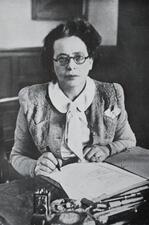Writing: Non-Fiction
Ewa Kuryluk
Ewa Kuryluk is an author, writer, essayist, artist, and art historian. Born in Poland, she did not know for a long time that her mother was a Jew and a member of the underground whose survival had been facilitated by her future husband. Kurlyuk has published in the field of art history, produced art held by museums around the world, and written poetry and novels.

Fran Lebowitz
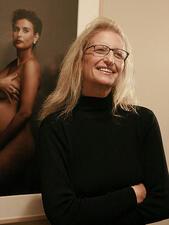
Annie Leibovitz
For decades, Annie Leibovitz and her camera have exposed to the public eye subtleties of character that lay beneath the celebrity personae of rock stars, politicians, actors, and literary figures. As chief photographer for Rolling Stone magazine, she fueled the American fascination with rock ’n’ roll dissidents in the 1970s; in the 1980s and 1990s, she captured the essence of the day’s great cultural icons with her work for Vanity Fair.
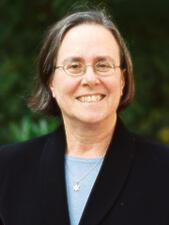
Anne Lapidus Lerner
Anne Lapidus Lerner is a pioneering scholar of Jewish women’s studies and was the first woman vice chancellor of the Jewish Theological Seminary. Lerner has established and fostered a long-lasting legacy through the teaching and mentorship of generations of students and dedication to Jewish learning. In 2017 she was awarded the Mathilde Schechter Award by the Women’s League for Conservative Judaism.
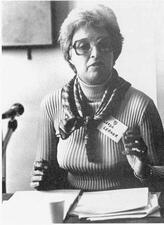
Gerda Lerner
Entering the field of United States history in 1966, Gerda Lerner blazed a new professional path that led to the establishment of the field of women’s history. Lerner’s force and commitment made her impervious to the ridicule with which the male-dominated profession initially responded to the notion of women’s history.
Lotta Levensohn
Nora Levin
Research librarian and educator Nora Levin’s books sparked controversy among historians, but she helped shape popular understanding of modern Jewish history.
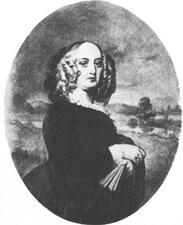
Fanny Lewald
Fanny Lewald was a successful and respected writer in nineteenth-century Germany. She established a salon in Berlin and became tremendously productive, writing novels, essays, and articles. In her influential autobiography, she argued for the emancipation of women. Lewald believed that women’s professional work was the basis of their liberation.
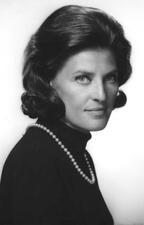
Flora Lewis
Flora Lewis was an American journalist whose insightful reports and commentaries helped explain some of the most significant international events of the second half of the twentieth century to millions of readers. At a time when women’s voices were rarely heard in journalism, Lewis was a trailblazer and a role model for an entire generation.
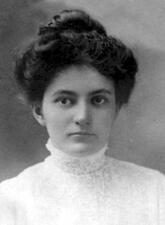
Lillian R. Lieber
Frustrated with the way math is taught in schools, Lillian R. Lieber created unconventional, popular books to excite young readers and incite their curiosity.
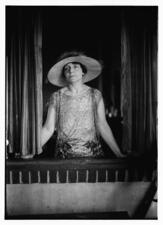
Estelle Liebling
Estelle Liebling was a talented opera singer who performed at the Dresden Royal Opera House and the Metropolitan Opera and toured through the United States and Europe. She trained popular and Metropolitan Opera singers at her studio in New York for fifty years and wrote books on vocal training and compositions for piano and voice.
Johanna Löwenherz
Johanna Löwenherz traveled widely on behalf of Germany’s socialist women’s movement, raising consciousness and lecturing on the social, economic, and legal equality of women. She became one of the most active representatives of the SDP in the Neuwied region, elected as a delegate to three regional party conferences.
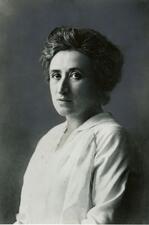
Rosa Luxemburg
Rosa Luxemburg was a socialist revolutionary known for her critical perspective. Born in Poland, Luxemburg had become an important figure in the world socialist movement by 1913. She argued against Lenin’s hierarchal conception of party organization, and against revisionism. Luxemburg was internationalist in orientation and unflinchingly dedicated to a radical democratic vision.
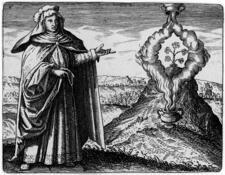
Maria the Jewess
Maria the Jewess was one of the founding practitioners in western alchemy, in the 1st–3rd centuries CE. She invented several types of chemical apparatus, ran a school of alchemy in Alexandria, Egypt, and was noted for her alchemical sayings. She is the earliest recorded Jewish woman to have published a book.
Miriam Markel-Mosessohn

Nicolette Mason

Ronit Matalon
Ronit Matalon was an Israeli writer of Egyptian heritage who wrote and published in Hebrew. She was the author of numerous works of fiction and essays and worked for many years as a journalist. Her work touches on Mizrahi identity, family, gender, and politics, and incorporates visual elements as well as cultural criticism.
Martha Tamara Schuch Mednick
Deborah Marcus Melamed
Deborah Marcus Melamed encouraged Jewish women to form their own relationship with Jewish practice through her 1927 book The Three Pillars, an interpretive guide to rituals and customs. Melamed also served as vice president of the Women’s League for Conservative Judaism from 1920 to 1930 or 1932.
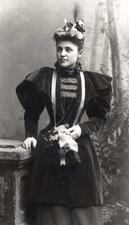
Alice Davis Menken
Alice Davis Menken was an influential social reformer whose many published works had a notable impact on the field of penology. She became interested in delinquency among young female Jewish immigrants while working at a settlement house on the Lower East Side. Menken proceeded to pioneer the argument that therapy, not punishment, is the most effective treatment for young delinquents.
Eve Merriam
Eve Merriam was an accomplished poet and playwright, best known for her books of children’s poetry that are beloved by audiences of all ages. Her life and career centered around New York, where she used her keen critical eye and unique tactile style to create poems and plays about urban life, social justice, feminism, and more.
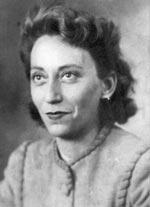
Jacqueline Mesnil-Amar
Jacqueline Mesnil-Amar struggled between her allegiance to French culture and her identity as a Jewish person. In her published journal, she perceptively documented the abandonment of French Jews during the Holocaust and the struggles of assimilated French Jews.
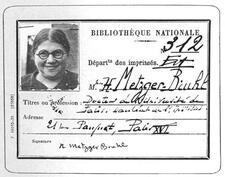
Hélène Metzger
Hélène Metzger was a French historian of chemistry and a philosopher of science, whose work remains influential today. Her independence and drive brought her great recognition, despite the lack of credibility given to her as a woman.
Katya Gibel Mevorach
